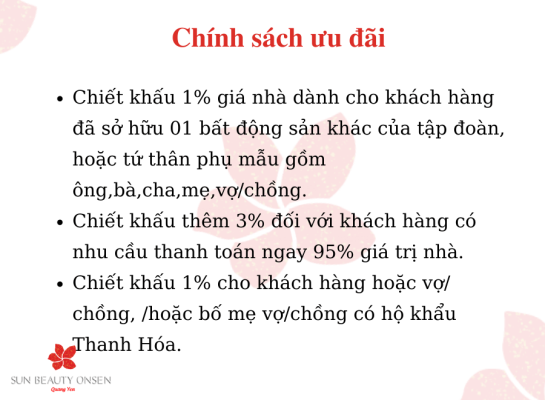- Balancing risk and reward, will you conquer the challenges of the chicken road while avoiding the fiery traps?
- Understanding the Basics of Chicken Road
- The Mechanics of Gameplay
- Strategies for Success in Chicken Road
- Psychological Aspects of Risk Taking
- The Role of Community in Chicken Road
- Developing Skills Through Community Engagement
- Final Thoughts on Chicken Road
Balancing risk and reward, will you conquer the challenges of the chicken road while avoiding the fiery traps?
In the world of online gaming, few experiences are as thrilling and engaging as “chicken road.” In this dynamic game, players take on the role of a chicken navigating a treacherous path filled with fiery ovens, where each hop forward could lead to more significant stakes—but also to fiery demise. This unique blend of risk and strategy not only captivates players but also provides a deep exploration of the decisions we face in the real world, mirroring our daily choices between safety and opportunity.
As the chicken jumps from one oven to another, the allure of increased rewards tempts players to push further along the treacherous path. Each oven represents a chance to multiply their bets, adding layers of excitement and uncertainty to the gameplay. However, one misstep could mean an abrupt end to the journey, highlighting the fact that in games as in life, high rewards often come with high risks.
This article dives into the mechanics of “chicken road,” exploring its rules, strategies, and the psychological factors that affect player decisions. We will also discuss how to master the game while balancing risk and reward, ensuring that players can maximize their returns without falling victim to reckless choices. Understanding these elements can significantly enhance the gaming experience, leading to more successful gameplay.
Join us as we embark on this exciting journey down the chicken road, examining every facet of the game—from its basic rules to advanced strategies, and finally, to the broader implications of risk management it presents. Prepare to navigate this flaming challenge with insight and foresight, ultimately deciding whether you will emerge as the victorious chicken or succumb to the fiery traps that lie ahead.
Understanding the Basics of Chicken Road
The foundation of “chicken road” lies in its simple but engaging mechanics. Players control a chicken that must leap from one oven to another while collecting increasingly higher bets as they succeed. The game is designed not just to be entertaining but to introduce players to fundamental gaming principles such as risk management and strategic planning.
A typical game begins with the player placing an initial bet, setting the stage for the rest of the gameplay. As the chicken successfully hops from one stage to the next, the stakes increase. Players must decide whether to jump for higher rewards or play it safe. Each jump is a critical decision-making moment that forces players to evaluate their current situation and the likely outcomes.
The ultimate goal is to collect as many rewards as possible while avoiding the fiery traps that can instantly end the game. Understanding the risk versus reward ratio is vital to succeeding in “chicken road.” The initial stages of the game often serve as a learning curve for newcomers, allowing them to acclimate to the pacing and decision-making process required to thrive.
| Stage 1 | $1 | $2 |
| Stage 2 | $2 | $4 |
| Stage 3 | $4 | $10 |
| Stage 4 | $8 | $20 |
| Stage 5 | $16 | $40 |
The Mechanics of Gameplay
Gameplay revolves around real-time decision making where each player’s choices dictate their outcome. Players must use both strategy and skill to guide their chicken through the various stages, each marked by a distinct set of challenges and traps. While some players opt for a cautious approach, focusing on slow and steady gains, others may take bold leaps in hopes of maximizing their rewards.
Understanding the timing of each jump is crucial; the wrong move can mean losing everything in an instant. Players must also be attentive to how the game scales in terms of difficulty and rewards. The design of “chicken road” encourages players to become adept in their gameplay, learning from each mistake while developing their abilities to make informed decisions.
As players progress, the challenge intensifies, and their decisions become more consequential. The game balance between greed for higher stakes and caution against the fiery traps teaches valuable lessons applicable outside the gaming environment, making every successful jump a testament to a player’s acumen.
Strategies for Success in Chicken Road
To truly excel at “chicken road,” players must adopt effective strategies that maximize their chances of success while minimizing potential losses. One crucial strategy is to understand the pattern of the ovens, as each stage can present unique obstacles. Developing a keen sense of timing can significantly impact gameplay, as knowing when to jump and when to hold back can lead to increased rewards.
Effective players often analyze their progress, adjusting their bets based on their performance. For instance, if a player successfully navigates the first few ovens without incident, it may be wise to increase their stakes for potentially larger rewards. However, if one begins encountering failures, it could be prudent to revert to a safer betting strategy until they regain their footing.
- Evaluate your risk tolerance: Know how much you are willing to lose.
- Observe patterns: Note the firing order and timing of the ovens.
- Gradual progression: Start with lower stakes to build confidence.
- Take breaks: Step away if the game feels frustrating, allowing yourself to reset.
Psychological Aspects of Risk Taking
Understanding the psychological factors influencing decision-making in “chicken road” can provide players with an inherent advantage. Fear of loss can often inhibit aggressive play, while the allure of larger rewards can lead to recklessness. Recognizing these psychological triggers is essential in maintaining a composed approach during gameplay.
Additionally, the concept of “loss aversion” plays a significant role; players often feel the weight of a loss more acutely than the joy of a win. This disparity can affect how players perceive their overall game progress and make critical decisions regarding their bets. Balancing these psychological aspects while strategizing can enhance the gameplay experience, leading to more calculated decisions.
Ultimately, players must strive to blend rational analysis with emotional intelligence, maintaining focus to navigate the challenging obstacles of “chicken road” effectively. By developing self-awareness regarding their tendencies, players can improve their gameplay and overall enjoyment of the experience.
The Role of Community in Chicken Road
The community aspect surrounding “chicken road” significantly enhances the gaming experience. Players often come together to share tips, strategies, and personal experiences, creating a vibrant network of enthusiasts. This sense of community plays a crucial role in fostering engagement and allowing players to learn from each other’s successes and failures.
Forums, chat rooms, and social media groups dedicated to the game provide platforms where players can discuss strategies and share screenshots of their accomplishments. This interaction can lead to valuable insights for both newcomers and seasoned players alike, as collaborating on various strategies can unveil new perspectives on the game.
Additionally, many games, including “chicken road,” offer competitive elements where players can challenge each other to see who can achieve the highest stakes. This competitiveness, coupled with community support, helps drive players to improve their skills and master the game together.
Developing Skills Through Community Engagement
Engaging with the community surrounding “chicken road” also facilitates skill development. Players frequently host gaming nights or tournaments where they can practice their strategies in a friendly yet competitive environment. These gatherings not only help to sharpen skills but also foster camaraderie among participants, as they cheer one another on and encourage healthy competition.
Moreover, having access to a supportive community can aid in mitigating the challenges associated with high-stakes games. By collectively facing the trials and tribulations of the “chicken road,” players often find motivation and inspiration from their peers to continue pushing forward.
As players share their successes and learning curves, the community evolves, creating a sense of belonging that enhances the gaming experience. This connection aligns with the social aspects of gaming, emphasizing that greater camaraderie can boost individual performance while enjoying the game.
Final Thoughts on Chicken Road
In conclusion, “chicken road” serves as an engaging metaphor for risk-taking in both gaming and life. The balance between risk and reward is a captivating theme that echoes throughout the gameplay, teaching players valuable lessons about decision-making and strategy. As players navigate through the fiery traps and thrill of jumping from one oven to another, they learn to embrace calculated risks, turning potential losses into opportunities for immense reward.
By employing strategic thinking and effectively managing psychological factors, players gain a clearer understanding of their gameplay patterns and strengths. Ultimately, mastering “chicken road” involves not just honing physical skills but also fostering a resilient mindset that can thrive amidst challenges. So, are you ready to leap into the adventure of the chicken road?



























